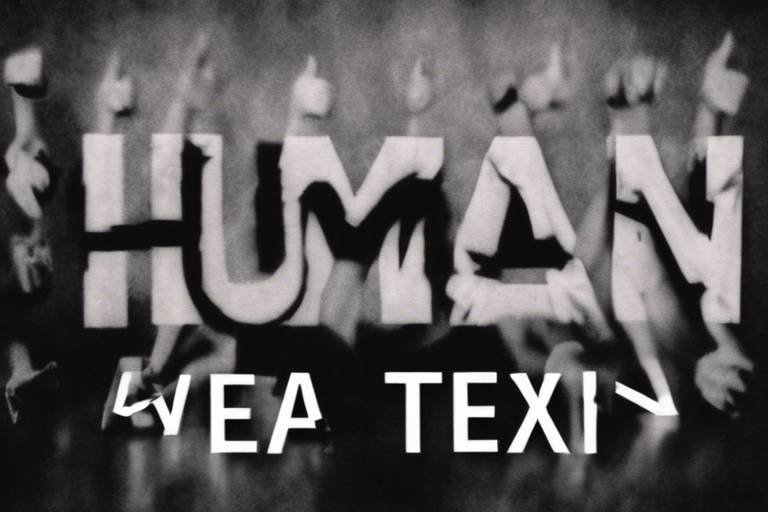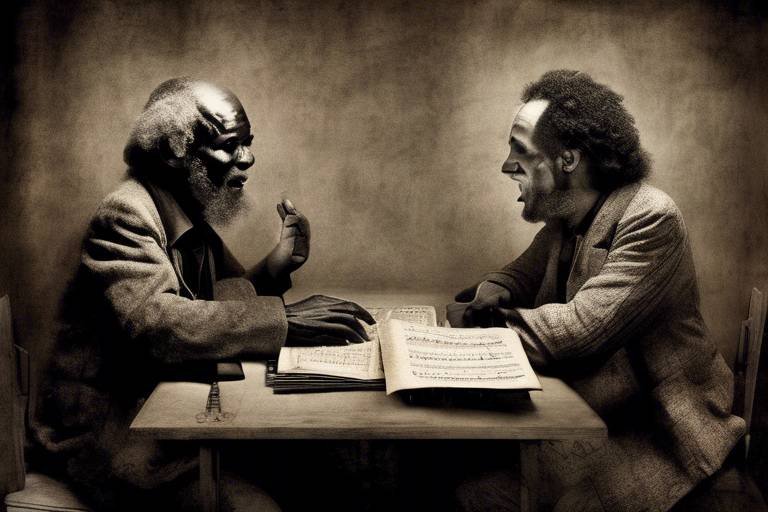Unveiling Socrates's Method: A Philosophic Initiative
Have you ever found yourself in a conversation that made you question everything you thought you knew? That's the magic of Socratic questioning. This ancient technique, developed by the great philosopher Socrates, is not just a relic of the past; it is a powerful tool that continues to shape our understanding of philosophy, education, and critical thinking today. Socratic questioning is more than just asking questions; it's about delving deep into the essence of ideas, challenging assumptions, and fostering a dialogue that leads to greater understanding. Imagine sitting across from someone who doesn't just take your answers at face value but pushes you to think harder and dig deeper. That's the essence of what Socrates did, and it's a method that remains incredibly relevant in our modern world.
At its core, the Socratic method is about encouraging self-reflection and critical analysis. It invites individuals to explore their beliefs and the reasoning behind them, often leading to profound insights. Think of it as peeling an onion: every layer you remove reveals something deeper, something that might challenge your initial perceptions. This method not only promotes intellectual engagement but also cultivates a sense of humility as we realize how much we still have to learn. In an age where information is abundant but understanding can be superficial, Socratic questioning serves as a beacon, guiding us toward deeper comprehension and more meaningful discussions.
The beauty of Socratic questioning lies in its simplicity and effectiveness. It encourages a conversational style where ideas can flow freely, allowing for a rich exchange of thoughts. This method can be applied in various settings, from classrooms to boardrooms, and even in our daily interactions. By asking open-ended questions, we can stimulate critical thinking and foster an environment where everyone feels comfortable expressing their views. It's not about winning an argument; it's about exploring the landscape of ideas together and discovering new perspectives.
As we journey through this article, we will explore the intricacies of the Socratic method, its historical context, its impact on modern education, and its applications in contemporary society. We will also examine some critiques and limitations associated with this method, ensuring a well-rounded understanding of its significance. So, buckle up! We're about to dive deep into the world of Socratic questioning, where every question leads to another layer of understanding.

The Essence of Socratic Questioning
Socratic questioning is more than just a method of inquiry; it is a profound philosophical tool that encourages individuals to dive deep into their own thoughts and beliefs. At its core, this technique is about asking questions that stimulate critical thinking and self-reflection. Imagine sitting down with a friend and instead of merely sharing opinions, you engage in a dialogue that challenges your perspectives. That’s the essence of the Socratic method—it's like navigating a maze where each question leads you to another layer of understanding.
So, what makes Socratic questioning so unique? First and foremost, it revolves around a series of open-ended questions that prompt deeper exploration of a topic. Unlike traditional questioning that often seeks a definitive answer, Socratic questioning is designed to uncover assumptions, challenge beliefs, and encourage a richer understanding of complex ideas. For instance, instead of asking, "Is this idea true?", a Socratic question would be, "What do we mean by 'truth'?" This shift in questioning not only invites a broader discussion but also helps individuals to articulate their thoughts more clearly.
Furthermore, Socratic questioning embraces a few key principles that enhance its effectiveness:
- Clarification: It seeks to clarify concepts and ideas, ensuring that everyone is on the same page.
- Probing assumptions: It challenges the underlying beliefs that shape our thoughts.
- Examining evidence: It encourages the evaluation of the evidence supporting a claim.
- Exploring alternative viewpoints: It opens the door to considering different perspectives.
This method is not just confined to philosophical discussions; it is a powerful approach that can be applied in various contexts, from classrooms to boardrooms. In education, for example, teachers utilize Socratic questioning to foster an environment where students feel safe to express their thoughts, thus promoting active learning. By asking questions that require students to think critically, educators help students develop essential skills, such as problem-solving and analytical thinking.
In essence, Socratic questioning acts as a catalyst for intellectual growth. It encourages individuals to step outside their comfort zones, confront their biases, and embrace the complexity of human thought. Just as a sculptor chisels away at a block of marble to reveal a masterpiece, Socratic questioning helps to refine and shape our understanding of the world around us. The beauty of this method lies in its ability to transform simple conversations into profound explorations of knowledge.
As we continue to navigate the complexities of modern life, the relevance of Socratic questioning becomes increasingly apparent. It empowers us to engage in meaningful dialogues, not just with others but also with ourselves. By fostering a habit of inquiry, we can cultivate a mindset that values curiosity and critical thinking, essential traits in an ever-evolving world.

Historical Context of Socratic Method
The Socratic method, a cornerstone of Western philosophy, emerged during a time of profound intellectual exploration in ancient Greece. This period, often referred to as the Classical Age, was marked by a shift from mythological explanations of the world to rational inquiries. Socrates, born in 470 BC, became a pivotal figure in this transformation, challenging the status quo and urging individuals to question their beliefs and the world around them. His approach was revolutionary; instead of delivering lectures, he engaged in dialogues that prompted others to think critically and reflectively.
Understanding the historical backdrop is crucial for appreciating the Socratic method's development. The political landscape of Athens, with its democratic ideals, provided fertile ground for Socratic questioning. Citizens were encouraged to participate in public discourse, and Socrates seized this opportunity to cultivate a culture of inquiry. He believed that through rigorous questioning, individuals could uncover deeper truths and recognize the limitations of their knowledge. This method not only fostered critical thinking but also laid the groundwork for future philosophical endeavors.
Furthermore, the influence of earlier thinkers cannot be overlooked. Philosophers such as Heraclitus and Parmenides posed significant questions about reality and knowledge that shaped Socratic thought. Socrates, however, took a different route; he focused on ethical questions and the examination of human life. His famous assertion, "The unexamined life is not worth living," encapsulates his belief that self-reflection is essential for a meaningful existence.
As Socrates engaged with various Athenians, he employed a technique that involved asking a series of probing questions, leading his interlocutors to realize contradictions in their beliefs. This process not only illuminated their ignorance but also encouraged them to seek greater understanding. The method was not merely about winning arguments; it was about fostering enlightenment and personal growth.
To illustrate the impact of the Socratic method, we can look at the following key aspects:
| Aspect | Description |
|---|---|
| Ethical Inquiry | Socrates emphasized the importance of ethics and virtue, prompting individuals to consider what it means to live a good life. |
| Dialogue Over Monologue | His approach favored dialogue as a means of exploring ideas, contrasting with the more traditional monologic teaching methods of the time. |
| Intellectual Humility | Socrates famously claimed to know nothing, promoting the idea that recognizing one's ignorance is the first step toward wisdom. |
The legacy of Socratic questioning did not end with Socrates himself. His student, Plato, not only recorded Socratic dialogues but also expanded upon them, shaping the future of philosophy. Plato's works reveal how Socratic questioning became a foundational method of inquiry, influencing generations of philosophers and educators. This historical context enriches our understanding of how the Socratic method evolved and its enduring significance in both philosophical thought and practical application.
In conclusion, the historical context of the Socratic method highlights its roots in ancient Greek culture, the democratic environment of Athens, and the philosophical inquiries of earlier thinkers. Socrates's unique approach to questioning not only transformed individual lives but also laid the groundwork for future philosophical discourse, making it a timeless tool for critical thinking and self-exploration.
- What is the Socratic method? The Socratic method is a form of dialogue that uses questioning to stimulate critical thinking and illuminate ideas.
- Who was Socrates? Socrates was an ancient Greek philosopher who is considered one of the founders of Western philosophy, known for his unique method of inquiry.
- How does the Socratic method apply today? Today, the Socratic method is used in education, law, and therapy to encourage deeper understanding and insight.

Influence on Plato
Plato, the illustrious student of Socrates, was profoundly shaped by the teachings and methodologies of his mentor. The Socratic method, with its emphasis on questioning and dialogue, became a cornerstone of Plato's philosophical inquiries. Imagine a world where every conversation is a quest for truth; this is the essence of Socratic questioning, and Plato took this ancient technique and transformed it into a powerful tool for exploration and understanding.
In his dialogues, Plato didn't merely echo Socratic ideas; he innovatively adapted them, creating a rich tapestry of philosophical discourse. Through characters such as Socrates himself, Plato engaged in deep discussions that dissected complex concepts like justice, virtue, and knowledge. His dialogues, often set in the bustling streets of Athens, serve as a stage where ideas clash and coalesce, much like a lively debate among friends at a café.
One of the most notable aspects of Plato's work is his use of the Socratic method to guide readers toward self-discovery. Rather than providing answers, he posed probing questions that compelled his audience to think critically and reflect deeply. This approach not only honored Socrates's legacy but also established a framework for philosophical inquiry that would influence countless thinkers for generations to come.
To illustrate this influence, let’s consider a few key dialogues:
| Dialogue | Key Themes | Method of Inquiry |
|---|---|---|
| The Republic | Justice, the ideal state | Questioning the nature of justice through definitions |
| Apology | Virtue, knowledge | Defending Socrates's philosophy through cross-examination |
| Phaedrus | Love, rhetoric | Exploring the nature of love through dialogue |
These dialogues not only showcase the depth of Plato's philosophical thought but also highlight how he utilized the Socratic method to engage with his audience. Each dialogue serves as a microcosm of Plato's broader philosophical vision, where questioning is not just a technique but a way of life. Through this lens, we see that the Socratic method is not merely a relic of ancient philosophy; it is a living, breathing approach to understanding the world around us.
In summary, Plato’s adaptation of the Socratic method was not just an homage to his teacher; it was a transformative leap in the realm of philosophical inquiry. By weaving Socratic questioning into his dialogues, Plato laid the groundwork for future philosophical exploration, ensuring that the spirit of inquiry and critical thinking would endure through the ages.

Dialogues as a Tool
The dialogues crafted by Plato are not just mere conversations; they are masterpieces of philosophical inquiry. Through these dialogues, Plato encapsulated the essence of Socratic questioning, transforming abstract ideas into engaging discussions. Imagine walking into a room where two thinkers are passionately debating the nature of justice or the essence of virtue—this is the power of dialogue. It’s like a dance of intellect, where questions lead, and answers follow, creating a rhythm of discovery.
In these dialogues, the Socratic method shines brightly. Plato utilized characters, often embodying different perspectives, to explore complex concepts. For instance, in the dialogue "The Republic," Socrates engages with Glaucon and Adeimantus, probing deep into the idea of justice. This method not only illuminates the subject matter but also invites readers to participate in the exploration. It’s as if Plato is saying, "Come, join the conversation; let’s figure this out together!"
Moreover, these dialogues serve as a pedagogical tool. They encourage readers to think critically and question their assumptions. By presenting arguments and counterarguments, Plato allows the audience to engage in a mental exercise, sharpening their reasoning skills. This is not just about finding the right answer; it's about the journey of inquiry. Just like a detective piecing together clues, the reader becomes an active participant in the philosophical investigation.
Consider the dialogue "Meno," where Socrates uses a series of questions to lead Meno to realize that knowledge is not just about recollection but understanding. This is a classic example of how dialogue can be used to unlock deeper insights. It’s akin to peeling an onion—layer by layer, the truth is revealed, often leading to more questions than answers. This method of inquiry fosters a culture of curiosity and intellectual humility, essential traits for any learner.
In summary, Plato's dialogues are more than just literary works; they are dynamic tools for philosophical exploration. By employing the Socratic method, he not only preserves Socrates's legacy but also provides a framework that remains relevant today. Whether in a classroom setting or a casual conversation, the art of dialogue encourages individuals to think critically, engage deeply, and embrace the beauty of questioning. Just as Socrates did, we too can discover the richness of knowledge through the power of dialogue.
- What is the Socratic method? The Socratic method is a form of cooperative argumentative dialogue that stimulates critical thinking and illuminates ideas through asking and answering questions.
- How did Socrates influence modern education? Socrates's emphasis on questioning and dialogue has shaped contemporary educational practices, promoting active learning and critical thinking.
- Can the Socratic method be applied in everyday conversations? Absolutely! The Socratic method encourages deep discussions and can be used in various contexts, from casual chats to serious debates.
- What are some critiques of the Socratic method? Some critiques include its potential to confuse rather than clarify, and that it may not be suitable for all learning styles or situations.

Philosophical Legacy
The legacy of Socrates's method is profound and far-reaching, echoing through the corridors of Western philosophy and leaving an indelible mark on countless thinkers. Socratic questioning, characterized by its relentless pursuit of truth through dialogue, has become a cornerstone of philosophical inquiry. It encourages individuals to dissect their beliefs, examine their reasoning, and ultimately arrive at a deeper understanding of themselves and the world around them.
Following Socrates's footsteps, his most famous student, Plato, harnessed this method in his dialogues, which not only immortalized Socratic questioning but also expanded upon it. Plato's works, including the "Apology," "Crito," and "Phaedrus," serve as prime examples of how Socratic questioning can unveil profound truths about justice, morality, and the human condition. In these dialogues, we see characters engage in rigorous debates, challenging each other’s preconceptions and wrestling with complex ideas. This dynamic interplay not only illustrates the effectiveness of the Socratic method but also highlights its importance in philosophical discourse.
Moreover, the influence of Socratic questioning extends beyond Plato. It has shaped the thoughts of later philosophers such as Aristotle, Descartes, and Kant, who incorporated elements of this method into their own philosophical frameworks. The Socratic legacy can be summarized in several key areas:
- Critical Thinking: Socratic questioning promotes a culture of inquiry, urging individuals to think critically and question the status quo.
- Ethical Examination: It encourages a deep dive into moral and ethical considerations, prompting individuals to assess their values and beliefs.
- Educational Reform: The method has significantly influenced modern pedagogical approaches, emphasizing the importance of dialogue and questioning in learning environments.
In essence, Socrates's philosophical legacy is not merely a historical artifact; it is a living tradition that continues to inspire and challenge us today. The principles underlying the Socratic method remind us that the journey toward knowledge is as important as the knowledge itself. By engaging in thoughtful dialogue, we can navigate the complexities of existence and foster a deeper understanding of our shared humanity.
As we reflect on Socrates's contributions, we recognize that the questions he posed are just as relevant now as they were in ancient Greece. The Socratic method encourages us to remain curious, to question our assumptions, and to engage with the ideas of others, ensuring that the philosophical legacy of Socrates endures for generations to come.
- What is the Socratic method? The Socratic method is a form of cooperative argumentative dialogue that stimulates critical thinking and illuminates ideas through asking and answering questions.
- How does Socratic questioning work in education? In educational settings, Socratic questioning encourages students to think deeply about the subject matter, fostering an environment where they can explore complex ideas and engage in meaningful discussions.
- Can the Socratic method be applied outside of philosophy? Yes, the Socratic method is widely applicable in various fields, including law, therapy, and everyday conversations, where it helps individuals uncover truths and gain insights.
- What are some criticisms of the Socratic method? Critics argue that the Socratic method can be time-consuming and may not always lead to clear answers, as it often raises more questions than it resolves.

Impact on Modern Education
The Socratic method has revolutionized the landscape of modern education, transforming the way teachers and students interact in the classroom. Rather than merely transmitting information, educators now strive to cultivate an environment where students actively engage with material through questioning and dialogue. This approach encourages learners to explore their thoughts, challenge assumptions, and develop their critical thinking skills. The essence of this method lies in its ability to foster a deeper understanding of subjects by prompting students to articulate their reasoning and confront their beliefs.
In practice, the Socratic method involves a series of thought-provoking questions designed to stimulate discussion and reflection. For instance, instead of asking students to memorize facts, a teacher might pose a question like, "What do you think the implications of this historical event are?" This not only invites students to think critically but also encourages them to consider multiple perspectives. By engaging in this kind of dialogue, students learn to analyze arguments, identify biases, and construct well-reasoned conclusions.
Moreover, the Socratic method promotes a sense of community within the classroom. When students participate in discussions, they are not just passive recipients of knowledge; they become co-creators of understanding. This collaborative environment can lead to enhanced engagement, as students feel more invested in their learning journey. They learn to listen actively to their peers, respect differing viewpoints, and articulate their thoughts in a supportive setting.
To illustrate the impact of the Socratic method in education, consider the following table that highlights its benefits:
| Benefits of Socratic Method | Description |
|---|---|
| Enhanced Critical Thinking | Students learn to analyze and evaluate information critically. |
| Improved Communication Skills | Engaging in dialogue helps students articulate their ideas clearly. |
| Increased Engagement | Active participation fosters a deeper interest in the subject matter. |
| Collaboration | Students learn to work together and respect diverse opinions. |
Additionally, the Socratic method has found its way into various educational settings, including higher education and professional training. Law schools, for example, often employ this technique to train future attorneys. By engaging in rigorous questioning, students learn to think on their feet, analyze complex legal issues, and develop persuasive arguments. This method not only prepares them for the courtroom but also instills a lifelong love for inquiry and debate.
In conclusion, the impact of the Socratic method on modern education cannot be overstated. By prioritizing dialogue over rote memorization, educators are equipping students with the tools necessary for success in an increasingly complex world. As we continue to embrace this ancient technique, we pave the way for a generation of thinkers who are not only knowledgeable but also capable of navigating the nuances of life with wisdom and insight.
- What is the Socratic method? The Socratic method is a form of dialogue that uses questioning to stimulate critical thinking and illuminate ideas.
- How does it benefit students? It enhances critical thinking, improves communication skills, increases engagement, and fosters collaboration among students.
- Is the Socratic method used in modern classrooms? Yes, many educators incorporate the Socratic method to promote active learning and deeper understanding of subjects.
- What subjects can the Socratic method be applied to? It can be applied across various subjects, including philosophy, law, literature, and social sciences.

Applications in Contemporary Society
The relevance of Socratic questioning extends far beyond the ancient agora of Athens; it permeates various facets of contemporary life, influencing how we communicate, learn, and even resolve conflicts. In today's fast-paced world, where information is abundant yet often superficial, the ability to engage in deep, thoughtful dialogue is more crucial than ever. Whether in the classroom, the courtroom, or personal relationships, the Socratic method serves as a powerful tool for fostering understanding and promoting critical thought.
In educational settings, teachers increasingly recognize the value of Socratic questioning as a means to enhance student engagement. Instead of merely delivering information, educators are now encouraging students to ask questions that challenge assumptions and explore deeper meanings. This approach not only helps students develop critical thinking skills but also cultivates a classroom environment where curiosity is celebrated. For instance, a history teacher might pose the question, “What were the underlying causes of a historical event?” prompting students to analyze various perspectives rather than simply memorizing dates and facts.
Moreover, the Socratic method finds its place in the legal field, where rigorous questioning is essential for uncovering the truth. Lawyers employ this method to dissect arguments, challenge witnesses, and clarify the complexities of a case. By asking pointed questions, they can reveal inconsistencies in testimonies or highlight critical evidence that might otherwise go unnoticed. In law schools, students are trained to think like lawyers through Socratic dialogue, where they must defend their positions and critically assess opposing viewpoints. This not only prepares them for the courtroom but also instills a mindset of analytical thinking that is invaluable in any profession.
Another significant application of Socratic questioning is in therapeutic settings. Therapists utilize this method to guide clients through their thoughts and emotions, helping them uncover underlying beliefs and assumptions. By asking open-ended questions, therapists encourage clients to reflect on their experiences, fostering self-discovery and personal growth. For example, a therapist might ask, “What evidence do you have that supports this belief about yourself?” This kind of questioning encourages clients to critically examine their thoughts, leading to greater insight and often, transformative change.
Beyond education and therapy, Socratic questioning plays a vital role in everyday conversations. In our daily interactions, whether with friends, family, or colleagues, asking thoughtful questions can deepen relationships and promote understanding. Instead of jumping to conclusions or making assumptions, we can create a space for dialogue that encourages openness and vulnerability. Imagine a conversation where instead of saying, “You always do this,” one might ask, “What makes you feel that way?” This shift not only opens the door to a more meaningful exchange but also fosters empathy and connection.
In conclusion, the applications of Socratic questioning in contemporary society are vast and varied. From the classroom to the courtroom, and even in our personal lives, this ancient technique remains a relevant and powerful tool for promoting critical thinking and fostering deeper understanding. As we navigate an increasingly complex world, embracing the art of questioning can lead to richer conversations and more profound insights.
- What is Socratic questioning? Socratic questioning is a method of dialogue that encourages critical thinking by asking open-ended questions that challenge assumptions and promote deep reflection.
- How can Socratic questioning be applied in education? In education, teachers use Socratic questioning to engage students in discussions that foster critical thinking and encourage them to explore complex ideas.
- Is the Socratic method useful in therapy? Yes, therapists employ Socratic questioning to help clients explore their thoughts and feelings, facilitating insight and personal growth.
- Can Socratic questioning improve everyday conversations? Absolutely! By asking thoughtful questions, we can enhance our conversations, leading to deeper understanding and stronger relationships.

Legal Practices
The Socratic method has carved a niche for itself in the realm of legal practices, where the art of questioning is not just a tool but a vital strategy for uncovering truths. Imagine stepping into a courtroom, where every question posed is like a carefully placed chess move, designed to reveal hidden motives and clarify ambiguous statements. In legal settings, the Socratic method encourages lawyers to engage in a rigorous dialogue, prompting both witnesses and jurors to think critically about the evidence presented. This method is not merely about asking questions; it’s about fostering an environment where ideas can be dissected, examined, and understood on a deeper level.
One of the most significant advantages of employing the Socratic method in legal practices is its ability to challenge assumptions. By asking pointed questions, lawyers can expose inconsistencies in testimonies, thereby guiding jurors to arrive at their own conclusions rather than simply accepting the narrative presented. For instance, a lawyer might ask, “What evidence supports this claim?” or “How do you reconcile that statement with the facts?” Such inquiries not only clarify the situation but also encourage critical thinking among all parties involved.
Moreover, the Socratic method is pivotal in legal education. Law schools across the globe have adopted this technique to train future lawyers. In a typical law school classroom, students engage in discussions that mimic real courtroom scenarios, where they must think on their feet and respond to challenging questions from their professors. This method cultivates a mindset that values inquiry and analysis, essential skills for any successful attorney. The following table illustrates the key benefits of using the Socratic method in legal practices:
| Benefit | Description |
|---|---|
| Critical Thinking | Encourages lawyers and students to think critically about evidence and arguments. |
| Clarity | Helps clarify complex legal issues through structured questioning. |
| Engagement | Promotes active participation from all parties, enhancing understanding. |
| Truth Discovery | Facilitates the uncovering of truths through rigorous examination. |
In essence, the Socratic method transforms the legal landscape into a dynamic arena of dialogue and discovery. It empowers lawyers to not only present their cases but also to engage in meaningful conversations that can lead to profound insights. By fostering a culture of inquiry, the Socratic method ensures that the search for justice is both thorough and thoughtful, ultimately benefiting the legal system as a whole.
- What is the Socratic method? The Socratic method is a form of dialogue based on asking and answering questions to stimulate critical thinking and illuminate ideas.
- How is the Socratic method used in legal practices? It is used to uncover truths, challenge assumptions, and engage all parties in critical analysis during legal proceedings.
- Why is critical thinking important in law? Critical thinking allows lawyers to analyze evidence, construct persuasive arguments, and navigate complex legal issues effectively.
- Can the Socratic method be applied outside of law? Yes, it is widely used in education, therapy, and various fields to promote deeper understanding and insight.

Therapeutic Conversations
The world of therapy can often feel like a labyrinth, filled with twists and turns that can leave individuals feeling lost or overwhelmed. However, one of the most effective tools therapists have at their disposal is the Socratic method. This ancient technique, rooted in questioning and dialogue, allows clients to peel back the layers of their thoughts and emotions, revealing the core issues that may be affecting their mental health. By engaging in that utilize Socratic questioning, therapists can guide clients toward greater self-awareness and personal growth.
Imagine sitting in a cozy room, the soft hum of a clock ticking in the background, and your therapist asks you a question that seems simple yet profound: "What do you really mean when you say you’re unhappy?" This question is not just a casual inquiry; it’s a launchpad for a deeper exploration of your feelings. The beauty of Socratic questioning lies in its ability to challenge assumptions and provoke critical thinking. Instead of providing answers, therapists facilitate a dialogue that encourages clients to reflect on their beliefs and motivations.
Through the process of , clients often find that they possess the answers within themselves, waiting to be uncovered. This method is particularly effective for several reasons:
- Empowerment: Clients feel empowered as they take an active role in their healing process, rather than being passive recipients of advice.
- Insight: By articulating their thoughts, clients gain insights that can lead to breakthroughs in understanding their behaviors and emotions.
- Clarity: Socratic questioning helps clarify vague feelings and thoughts, turning confusion into clarity.
Moreover, the Socratic method fosters a safe space for vulnerability. In therapy, trust is paramount, and the open-ended nature of Socratic questioning allows clients to express themselves without fear of judgment. For example, a therapist might ask, "What evidence do you have that supports your belief about yourself?" This question not only encourages clients to examine their beliefs critically but also validates their experiences, making them feel heard and understood.
As clients engage in these rich dialogues, they often experience a shift in perspective. It’s like turning a kaleidoscope; a slight adjustment can result in a completely different view. This transformative process can lead to significant changes in how individuals perceive their challenges and themselves. By the end of a session, a client may leave with a newfound sense of hope and clarity, equipped with tools to tackle their issues head-on.
In conclusion, the integration of the Socratic method into therapeutic conversations is not just a technique; it's a philosophy that champions the client's journey toward self-discovery. As therapists continue to embrace this method, the potential for personal growth and healing expands, making therapy a more dynamic and impactful experience.
What is the Socratic method in therapy?
The Socratic method in therapy involves using open-ended questions to encourage clients to explore their thoughts and feelings deeply, leading to greater self-awareness and insight.
How does Socratic questioning benefit clients?
Socratic questioning benefits clients by empowering them to take an active role in their healing process, fostering clarity, and helping them uncover personal insights.
Can the Socratic method be used in other fields besides therapy?
Yes, the Socratic method is versatile and can be applied in various fields, including education, law, and everyday conversations, to promote critical thinking and dialogue.

Critiques and Limitations
The Socratic method, while revered for its profound impact on philosophy and education, is not without its critiques and limitations. One of the most significant criticisms is that the method can sometimes lead to confusion rather than clarity. When engaging in Socratic questioning, participants may find themselves caught in a web of questions that lead to more questions, creating a sense of frustration instead of enlightenment. This is particularly true in environments where time is limited, such as in a classroom setting where a teacher might feel pressured to cover a specific curriculum.
Moreover, the effectiveness of the Socratic method heavily relies on the skill of the facilitator. If the person leading the dialogue lacks the ability to ask thought-provoking questions or fails to guide the discussion constructively, the entire exercise may fall flat. This can lead to a situation where participants feel lost or disengaged, which contradicts the very purpose of fostering critical thinking and self-reflection.
Another limitation is the assumption that all individuals possess the same level of critical thinking ability. Not everyone is comfortable with open-ended questions or possesses the skills necessary to navigate complex philosophical discussions. This discrepancy can create an uneven playing field, where some participants thrive while others struggle to keep up. In such cases, the Socratic method may inadvertently reinforce existing inequalities in understanding and participation.
Furthermore, the method's reliance on dialogue can be a double-edged sword. While it promotes discussion and exploration of ideas, it can also lead to dominance by more outspoken individuals. In a group setting, those who are more articulate may overshadow quieter participants, stifling diverse perspectives. This can result in a skewed understanding of the topic at hand, as the voices of less confident individuals may go unheard.
Lastly, it’s important to recognize that the Socratic method is not universally applicable. In some fields or contexts, direct instruction may be more effective than open-ended questioning. For instance, in technical subjects where specific knowledge is crucial, a more traditional teaching approach might yield better results. Therefore, while the Socratic method has its merits, it is not a one-size-fits-all solution.
In summary, while the Socratic method serves as a powerful tool for fostering critical thinking and dialogue, it is essential to approach it with an understanding of its limitations. By acknowledging these critiques, educators and facilitators can adapt their methods to ensure that discussions remain productive, inclusive, and enlightening.
- What is the Socratic method? The Socratic method is a form of dialogue that uses probing questions to stimulate critical thinking and illuminate ideas.
- How is the Socratic method applied in education? Educators use the Socratic method to engage students in discussions, encouraging them to think deeply and critically about the subject matter.
- Are there any drawbacks to using the Socratic method? Yes, some drawbacks include potential confusion, dependence on the facilitator's skill level, and the possibility of overshadowing quieter participants.
- Can the Socratic method be used in fields outside of philosophy? Absolutely! It is used in various fields, including law, therapy, and everyday conversations, to foster deeper understanding.
Frequently Asked Questions
- What is the Socratic method?
The Socratic method is a form of dialogue that encourages critical thinking through asking and answering questions. It's designed to stimulate deep thought and illuminate ideas, often leading participants to discover answers for themselves rather than being told what to think.
- How does Socratic questioning promote critical thinking?
Socratic questioning promotes critical thinking by challenging assumptions and encouraging individuals to explore the reasoning behind their beliefs. By asking open-ended questions, it pushes people to think more deeply and articulate their thoughts clearly, fostering a culture of inquiry and reflection.
- What historical significance does the Socratic method hold?
The Socratic method has historical significance as it laid the groundwork for Western philosophy. Originating in ancient Greece, it influenced many philosophers, including Plato, who adapted it in his dialogues, ensuring its principles would resonate through the ages and remain relevant in modern discourse.
- In what ways is the Socratic method used in modern education?
In modern education, the Socratic method is used to foster student engagement and promote critical thinking. Educators employ questioning techniques to encourage students to explore concepts, articulate their reasoning, and engage in meaningful discussions, making learning a collaborative process.
- Can the Socratic method be applied outside of academia?
Absolutely! The Socratic method is applicable in various fields, including law and therapy. In legal settings, it helps uncover truths through rigorous questioning, while therapists use it to guide clients in exploring their thoughts and feelings, facilitating personal growth and insight.
- What are some critiques of the Socratic method?
While the Socratic method is widely respected, it faces critiques regarding its effectiveness in certain contexts. Some argue it can lead to confusion or frustration if not executed well, and others question its applicability in more structured learning environments where direct instruction may be necessary.



















